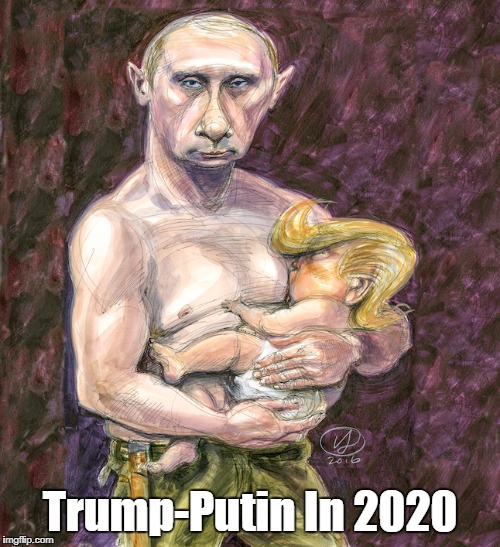
To re-state the obvious: Trump sucks.
What The Trump-Russia Grand Jury Means
"What The Trump-Russia Grand Jury Means"
Ryan Lizza, The New Yorker
Hours after news broke that Robert Mueller, the special counsel in the Russia probe, has impanelled a grand jury as part of his investigation, President Trump declared at a rally in West Virginia that “the Russia story is a total fabrication. It’s just an excuse for the greatest loss in the history of American politics.”
Trump’s comments, which were meant to denigrate and perhaps thwart the Mueller probe, were undermined by the fact that the grand jury has been at work for several weeks in the District of Columbia.
Grand juries don’t investigate hoaxes, and there are rules against using them for anything resembling a political witch hunt. As several former federal prosecutors told me, the grand jury is significant because it means that Mueller is in the midst of a “predicated” criminal investigation. That is, he has reached the point where he has evidence of criminal conduct. “It can’t be used for a fishing expedition,” Matt Olsen, a former federal prosecutor, said. “He’s got a very powerful tool to pursue specific federal crimes.”
At the same time, the fact that Mueller is using a grand jury does not mean indictments are imminent or even a certainty. In the Clinton e-mail case, a grand jury was impanelled to issue some subpoenas—a fact that was only recently discovered—but it was never used to issue any indictments.
Still, this marks an important milestone in the investigation. Generally, in the early stages of a criminal case, grand juries are used to compel the production of documents and other evidence, which may be how the Wall Street Journal, which broke the story, discovered what Mueller was up to. While Trump has maneuvered to shut down the case—by attacking Mueller; Jeff Sessions, the Attorney General; and Andrew McCabe, the former acting head of the F.B.I., and now its deputy—a grand jury can mean the investigation will drag on for months or even years. The grand juries in both the Watergate and Whitewater investigations were impanelled for years and eventually heard testimony from Richard Nixon and Bill Clinton, respectively.
It had previously been reported that investigators were using a grand jury in the Eastern District of Virginia for the Russia case. That grand jury was probing potential crimes committed by Michael Flynn, the former national-security adviser, in his role as an agent for foreign interests. Former prosecutors whom I talked to noted that Mueller may have chosen to use a grand jury in Washington for several reasons. He is deeply familiar with the judges in the Washington federal court. As the Journal noted, simple convenience may also have been a factor: it’s a few blocks from Mueller’s office building. “D.C. versus Virginia may just be a matter of convenience,” Olsen, the former prosecutor, said. “But he has a good relationship with the judges in the D.C. courthouse.”
There may also be a political reason. Though it is notoriously easy for prosecutors to convince a grand jury to issue indictments, any grand jury in Washington, which voted overwhelmingly for Hillary Clinton, is likely to lean liberal and anti-Trump. In addition, it might suggest that Mueller is looking into crimes that are related to officials who live in Washington, D.C.
The next stage of the process will be even more theatrical. After Mueller uses the grand jury to compel the production of documents and other evidence from targets and witnesses in the investigation, he will likely begin bringing witnesses in for testimony. Though it’s not a hard-and-fast rule, prosecutors often use F.B.I. interviews for witnesses they deem to be more friendly. They use a grand jury, before which testimony is under oath and transcribed, to lock in testimony from more adversarial witnesses.
In a familiar Washington ritual, the courthouse where the Mueller grand jury is meeting will now be under constant monitoring by reporters on the lookout for familiar faces from Trump’s orbit. Those sightings may offer the next set of clues as to where the investigation is headed. After issuing subpoenas and taking testimony from witnesses, grand juries have only one other thing they can do: issue indictments.
We may be a long way from that, and, as in the Clinton e-mail case, they might not come at all. How will Trump react to the grand jury? Officially, his lawyer welcomed the news, insisting yesterday that the President wasn’t under investigation. “The White House favors anything that accelerates the conclusion of his work fairly,” Ty Cobb, a special counsel to the President, said. “The White House is committed to fully coöperating with Mr. Mueller.” But, for weeks, the President has publicly assailed Mueller and his team. His comments have been widely interpreted as laying the groundwork to fire Mueller and any Justice Department officials who defend him. The grand jury’s work is likely to enrage Trump further. As witnesses begin to appear and the media coverage intensifies, he will undoubtedly lash out more harshly, the way he did last night in West Virginia.
But the grand jury also makes it even more difficult and politically explosive for Trump to attempt to dismiss Mueller, whose use of a grand jury is the most concrete evidence yet that he is pursuing an expansive criminal case related to the Trump campaign’s possible involvement in Russia’s attempt to meddle in the 2016 election. That’s no hoax.

No comments:
Post a Comment